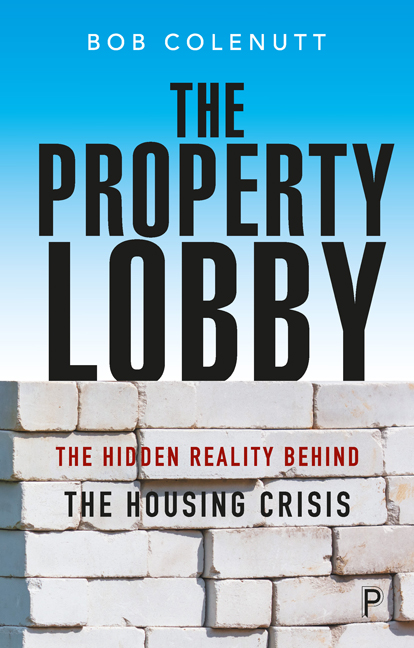Book contents
- Frontmatter
- Dedication
- Contents
- Acknowledgements
- Preface
- 1 The Finance–Housebuilding Complex
- 2 The Housing Shortage
- 3 The Housebuilding Business
- 4 Financing Housing Investment
- 5 The Property Lobby
- 6 Shaping National Housing and Planning Policy
- 7 The 2008 Financial Crash Continues
- 8 The Housebuilders and Affordable Housing
- 9 How the Social and Affordable Housing Sectors Got Swallowed
- 10 Local Case Studies
- 11 Unblocking the Impasse
- Postscript
- Notes
- References
- Index
9 - How the Social and Affordable Housing Sectors Got Swallowed
Published online by Cambridge University Press: 10 March 2021
- Frontmatter
- Dedication
- Contents
- Acknowledgements
- Preface
- 1 The Finance–Housebuilding Complex
- 2 The Housing Shortage
- 3 The Housebuilding Business
- 4 Financing Housing Investment
- 5 The Property Lobby
- 6 Shaping National Housing and Planning Policy
- 7 The 2008 Financial Crash Continues
- 8 The Housebuilders and Affordable Housing
- 9 How the Social and Affordable Housing Sectors Got Swallowed
- 10 Local Case Studies
- 11 Unblocking the Impasse
- Postscript
- Notes
- References
- Index
Summary
In 2015, residents of the Aylesbury Estate in London were faced with plans by Southwark Council to demolish their estate of 2,700 social rented council homes. The council entered into a partnership with Notting Hill Housing Trust, a well- known housing association with a distinguished 50- year record of building homes for social rent in London. However, the partnership entailed building a new estate of 3,500 homes, of which 50 per cent would be homes for sale and only one third would be for social rent. It would lead to a net loss of approximately 1,400 units and the displacement of local residents across the borough and elsewhere. It caused an uproar in the community, who strongly opposed the CPO of their estate. Nonetheless, the inspector at the CPO inquiry in 2018 approved the CPO and the rebuilding project is now going ahead (Minton, 2017).
Notting Hill Housing Trust was formed in 1963 with a mission to build social housing. It had an excellent reputation in London as a housing charity committed to the social housing sector. It now has a stock of 55,000 homes in London. In 2018, it merged with Genesis HA to become Notting Hill Genesis. How could Notting Hill Housing Trust, an association built on values of concern to house the poor and needy of West London, have found itself in the position of going into partnership with a local authority to knock down a council housing estate and replace it with 50 per cent private housing and only 30 per cent social housing? Equally shocking is that a Labour council with one of the largest housing waiting lists in London came to the conclusion that it should demolish an estate of social homes and become a developer for 1,750 private homes at prices well out of reach of people on the waiting list.
In North London, Hackney Council went into partnership with Berkeley Homes to decant 2,000 social housing units and undertake the regeneration of the Woodberry Down Estate, building a total of 5,500 new homes, of which most would be for sale. Indeed, the scheme includes luxury flats of £1 million overlooking a reservoir. As we saw in Chapter 3, Berkeley Homes is an avowed upmarket housing developer whose chairman, Tony Pidgley, has made a personal fortune from such schemes.
- Type
- Chapter
- Information
- The Property LobbyThe Hidden Reality behind the Housing Crisis, pp. 121 - 130Publisher: Bristol University PressPrint publication year: 2020

